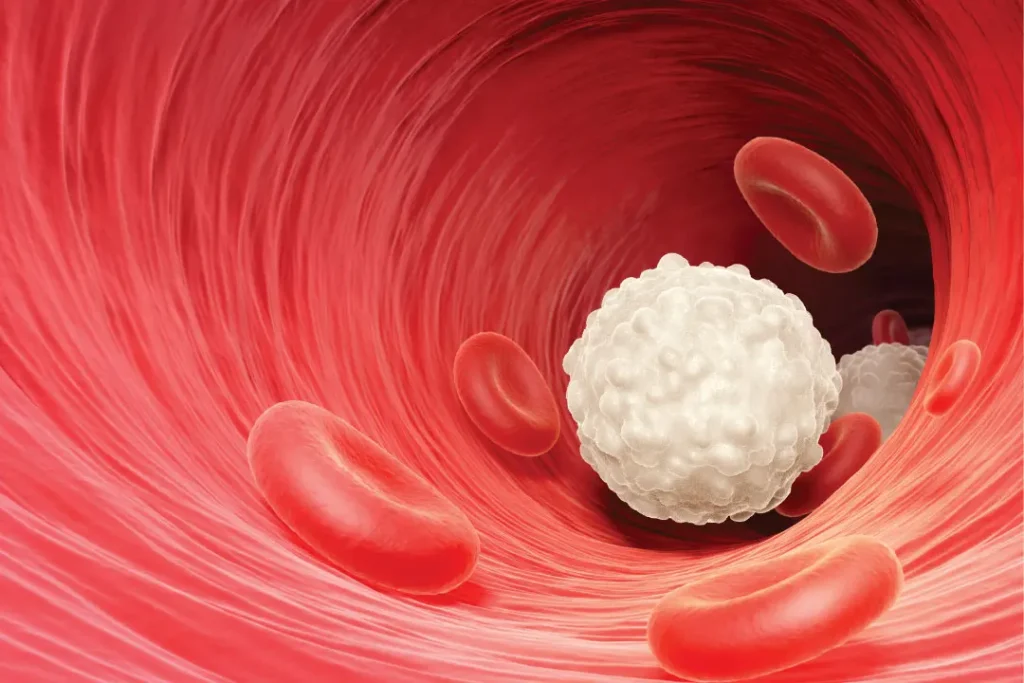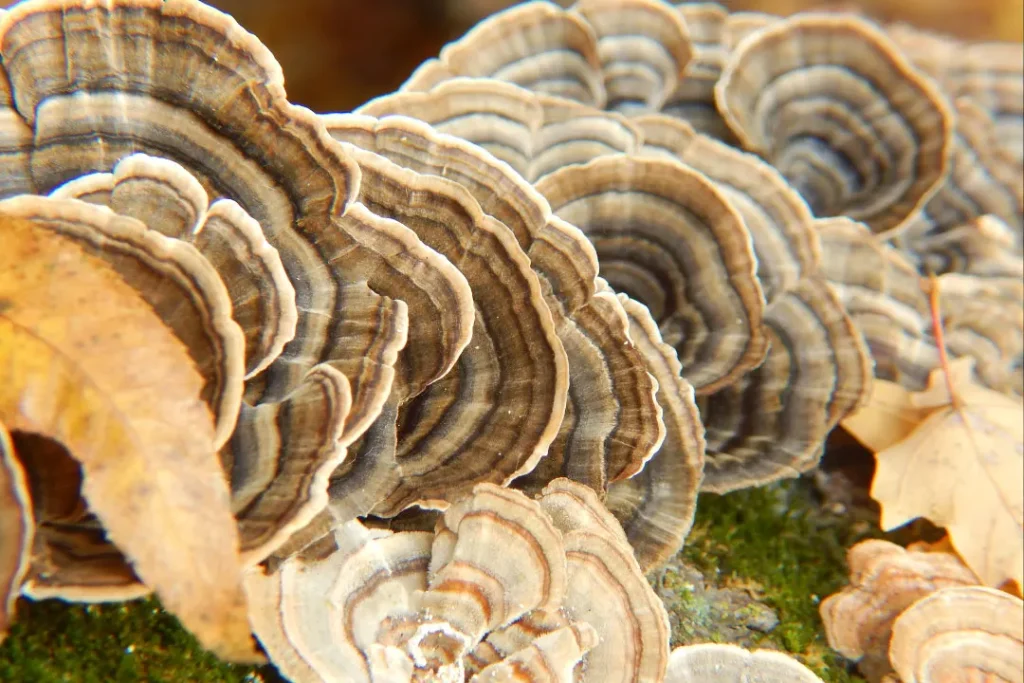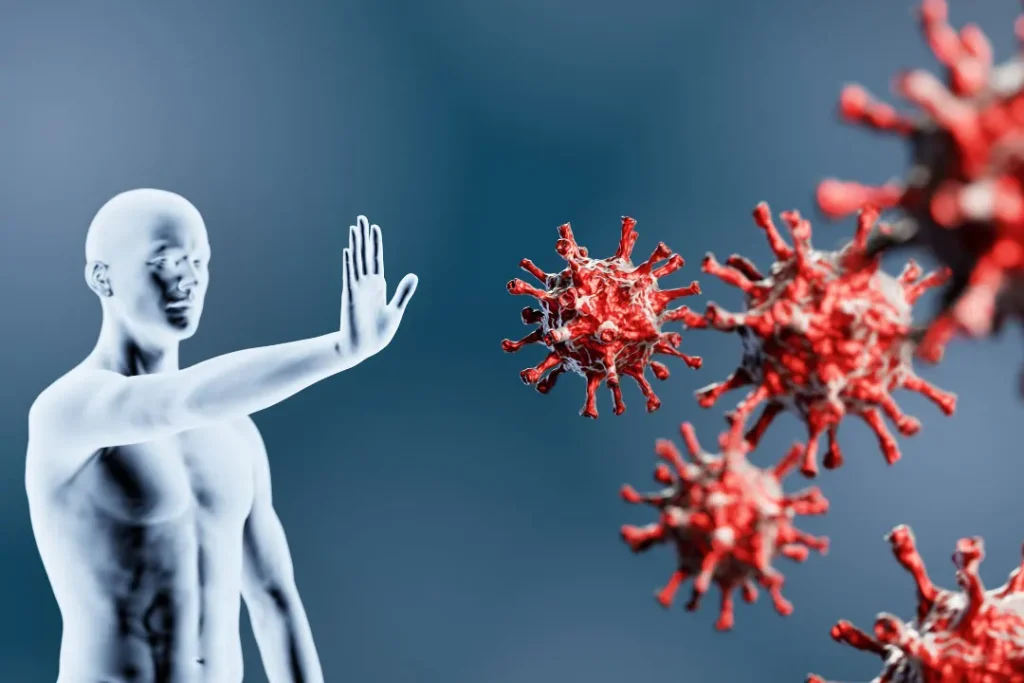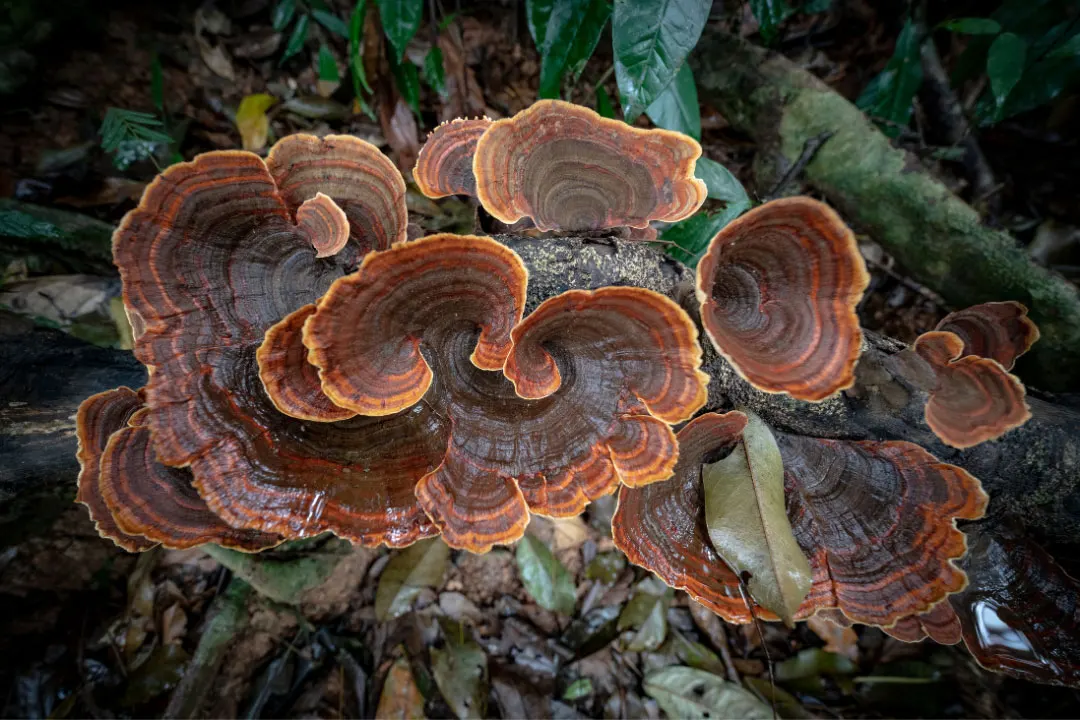Recent Turkey Tail mushroom cancer testimonials show that this potent fungus may help fight an often devastating and deadly disease. We’ll review the evidence.
“Turkey Tail” is the common name for several varieties of woody polypore mushrooms, including Trametes versicolor. The Turkey Tail mushroom is identifiable by its scalloped edges and bands of white, brown, and amber that resemble the tail feathers of a wild turkey and is a prevalent sight on tree stumps and fallen logs across Asia, Europe, and North America.
You May Also Like:
Whole Leaf CBD Oil vs. Partnered Process CBD2 Full Spectrum Oil
Common CoQ10 Deficiency Symptoms and 5 Great Ways to Boost Your CoQ10 Levels
The extract of Turkey Tail mushroom has been used as a treatment in many schools of traditional medicine, particularly in Chinese traditional medicine, where it is used to support the health of the lungs, liver, and spleen. In addition, there have been many testimonials extolling Turkey Tail extract’s potential to work alongside cancer treatments like chemotherapy, to bolster their effectiveness while minimizing their side effects. This article will explore some of these Turkey Tail mushroom cancer testimonials and the scientific research that supports their claims.
Turkey Tail mushroom cancer testimonials claim that it helps boost immunity
Both cancer and cancer therapies often weaken the immune system by damaging regulatory organs or by reducing the number of white blood cells available to combat pathogens. This increases the susceptibility of cancer patients to infections and their complications. Therefore, supporting the immune system is a vital aspect of cancer treatment. According to Turkey Tail mushroom cancer testimonials, the mushroom is an excellent way to boost immune health, and research offers supporting evidence. Some varieties of Turkey Tail contain polysaccharide-K, while others contain polysaccharopeptide, both of which belong to a class of immune-supporting substances known as beta-glucans.
Although their exact mechanism of action is not clear, it has been suggested that they may aid the body in the production of white blood cells; as a result, Turkey Tail could potentially offset the reduction of white blood cells caused by cancer treatments.

Turkey Tail mushroom cancer testimonials claim that its antioxidants can support cellular defense against cancer
One risk factor for cancer is oxidative damage to cells. During the process of oxidation, free radical oxygen molecules react with healthy cells, causing damage that, in some cases, could lead to cancer. Research has determined that reactive oxygen is involved in every stage of tumor development, including proliferation and metastasis. Antioxidants are the body’s natural defense against oxidation, but while the body produces some antioxidants naturally, others must come from the diet or supplements. Turkey Tail contains many antioxidants of different types; one study found 38 phenolic antioxidant compounds, along with multiple flavonoid antioxidant compounds, in a sample of Turkey Tail mushroom. This makes Turkey Tail an excellent candidate for protecting against cancer-causing oxidative damage at the cellular level.
Turkey Tail mushroom cancer testimonials claim that it may improve the efficacy of chemotherapy
Turkey Tail mushroom is sometimes prescribed as an adjuvant treatment for certain cancer therapies. While this is certainly in part due to its potential to reduce certain harmful side effects of those therapies, Turkey Tail mushroom cancer testimonials also claim that it may enhance the effectiveness of chemotherapy in eradicating cancer cells. Scientific research on these claims is mostly limited to test tube research and preliminary studies, but the early results are promising. In some cases, supplementation with Turkey Tail extract was found to increase the efficiency of chemotherapy in women with breast cancer. While further research is needed to prove these results can be replicated, the potential of Turkey Tail mushroom to boost the effectiveness of chemotherapy is encouraging.

Turkey tail mushroom cancer testimonials claim that it can potentially reduce the spread of cancer cells
Metastasis is the process by which cancer cells can travel via blood vessels or lymph nodes to parts of the body separate from the initial tumor and reproduce there, thus spreading cancer throughout the body. Prevention of metastasis is perhaps the greatest concern in the treatment of any cancer, as it becomes more dangerous and resistant to treatment the more it spreads.
Turkey Tail mushroom cancer testimonials have suggested that the mushroom might be able to slow down the process of metastasis. As with its ability to improve the effectiveness of chemotherapy, research into Turkey Tail’s effects on cancer cell proliferation and metastasis are largely in its early stages. However, in vitro studies – those taking place in a test tube, not a live subject – have shown promising results. Turkey Tail mushroom has been shown to reduce the proliferation and spread of cancer cells in vitro.
While the benefits of Turkey Tail are clear, it’s important to select a Turkey Tail supplement that is honest about its ingredients. Some supplements marketed as “mushroom” products contain only mycelia, which are root-like structures that lack the beneficial fruiting bodies of mushrooms. Although mycelia are an important part of the mushrooms’ structure, they don’t contain as many nutrients as the fruiting bodies. Moreover, mycelia are often grown on grains like wheat, rye, or rice, and many manufacturers don’t remove the grains before processing the mycelia into capsules, which results in a product with a high amount of filler.
However, certain brands, such as Real Mushrooms, use actual, nutrient-rich Turkey Tail mushrooms in their products instead of just mycelia. Real Mushrooms’ Turkey Tail supplements are tested by third-party labs to verify their beta-glucan content, which comes in at over 30%, making Real Mushrooms an ideal source of Turkey Tail supplements. This is important as choosing a reputable and trustworthy brand ensures that you’re receiving the full benefits of Turkey Tail and avoiding products that are diluted with fillers.

There’s plenty of evidence to support Turkey Tail mushroom cancer testimonials – but more research is necessary
Studies have shown that Turkey Tail mushroom is helpful for people undergoing cancer treatments due to its potential to offset immune system damage and prevent cellular oxidation. Preliminary studies have suggested that Turkey Tail may also contribute to the efficacy of chemotherapy or even help prevent metastasis. While these early results are promising, research into the effects of Turkey Tail mushroom on cancer and cancer treatment is still in its infancy. Further studies are necessary to understand the true extent of Turkey Tail’s benefits.

Further Reference:
NIH National Library of Medicine: In vitro bioactivity, antimicrobial and anti-inflammatory efficacy of modified solvent evaporation assisted Trametes versicolor extract
NIH National Library of Medicine: Chemical features of Ganoderma polysaccharides with antioxidant, antitumor and antimicrobial activities
NIH National Library of Medicine: Anti-protein-bound polysaccharide-K monoclonal antibody binds the active structure and neutralizes direct antitumor action of the compound
Important Note: The information contained in this article is for general informational purposes only, and should not be construed as health or medical advice, nor is it intended to diagnose, prevent, treat, or cure any disease or health condition. Before embarking on any diet, fitness regimen, or program of nutritional supplementation, it is advisable to consult your healthcare professional in order to determine its safety and probable efficacy in terms of your individual state of health.
Regarding Nutritional Supplements Or Other Non-Prescription Health Products: If any nutritional supplements or other non-prescription health products are mentioned in the foregoing article, any claims or statements made about them have not been evaluated by the U.S. Food and Drug Administration, and such nutritional supplements or other health products are not intended to diagnose, treat, cure, or prevent any disease.


